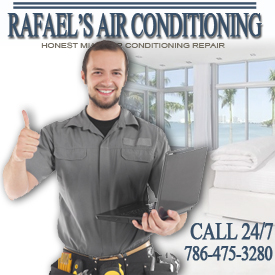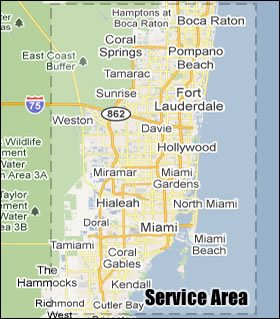Safety isn’t just a guideline but a necessity when dealing with AC systems. Whether handling high-voltage equipment, refrigerants, or working in tight spaces, AC repair technicians face various hazards daily. Prioritizing safety ensures not only their well-being but also the efficiency and reliability of the repairs.
Ahead in this article, we’ll dive into the essential safety precautions every technician must follow to excel in their craft and provide top-notch AC Repair Miami Beach services.
- Pre-Repair Safety Checks
Before starting any repair, preparation is key to ensuring a safe and efficient process.
Inspect Tools and Equipment
Technicians should thoroughly check their tools for defects or damage. Faulty tools can lead to accidents or ineffective repairs. Regular maintenance of tools ensures reliability and longevity.
Assess the Workspace
A cluttered or unsafe workspace increases the chances of mishaps. Clear away debris, ensure proper lighting, and assess potential hazards like wet floors or exposed wires.
Check for Electrical Hazards
HVAC systems often involve high-voltage components. Testing for live wires and ensuring the power supply is turned off can prevent electric shocks. Always double-check before proceeding.
Gauge System Pressure Levels
Faulty AC systems might have unexpected pressure buildups. Before opening any component, technicians should release residual pressure safely to avoid sudden discharges.
- Personal Protective Equipment (PPE): A Technician’s Shield
Wearing the right protective gear is non-negotiable in the world of AC repairs.
Safety Goggles
Protecting your eyes from flying debris or chemical splashes is crucial. Safety goggles provide a reliable shield during tasks like cutting or welding.
Insulated Gloves
These are essential when dealing with electrical components. Insulated gloves reduce the risk of electric shocks and provide a better grip on tools.
Respirators and Masks
AC Repair Miami Beach sessions often involve handling refrigerants, which can emit harmful fumes. Respirators ensure technicians breathe clean air, especially in poorly ventilated areas.
Sturdy Footwear
Non-slip, reinforced boots protect against falling objects and provide stability on slippery or uneven surfaces.
- Safe Handling of Refrigerants and Chemicals
Refrigerants are indispensable for AC systems but can be hazardous if mishandled.
EPA Guidelines Compliance
Following EPA regulations for refrigerant handling ensures environmental safety and compliance with legal standards. Proper certification for refrigerant management is a must.
Leak Prevention and Proper Storage
Technicians should regularly check for leaks and secure refrigerant cylinders during transportation and storage. It minimizes the risk of exposure and accidental releases.
Avoid Direct Contact
Direct skin or eye contact with refrigerants can lead to severe injuries. Always use appropriate gloves and avoid leaning over open refrigerant containers.
- Electrical Safety Protocols
Electrical components are among the most dangerous parts of an AC system. Strict protocols can save lives.
De-Energize the System
Always shut off the power supply before beginning any electrical work. Use a voltage tester to confirm the system is completely de-energized.
Understand Voltage Ratings
Every AC system operates differently, so knowing the specific voltage ratings prevents equipment damage and potential shocks.
Use Grounded Tools
Grounded and insulated tools reduce the risk of accidental short circuits and electrical injuries.
- Ergonomics and Physical Safety
Beyond the technical risks, technicians must also protect themselves from physical strain.
Proper Lifting Techniques
AC units and components can be heavy. To avoid back injuries, technicians should use their legs, not their back, for lifting, or utilize mechanical aids like dollies.
Ladder Safety
For outdoor units or installations at heights, ensure ladders are stable and placed on a firm surface. Avoid overreaching while on a ladder.
Prevent Heat Stress
Many AC repairs occur in hot, enclosed spaces. Staying hydrated and taking breaks reduces the risk of heat-related illnesses.
- Emergency Response Readiness
Despite precautions, emergencies can happen. Being prepared minimizes damage and ensures swift recovery.
First-Aid Training
Technicians should be well-versed in administering basic first aid, including treating burns, cuts, and electrical injuries.
Emergency Contact Numbers
Always have emergency services, poison control, and relevant HVAC safety hotlines on speed dial.
Incident Reporting
Documenting accidents or near-misses helps identify safety gaps and prevents future occurrences.
Final Words: Commitment to Safety Ensures Quality Repairs
In conclusion, safety precautions are not optional but a cornerstone of professionalism in the HVAC industry. By adhering to these protocols, AC repair technicians can safeguard their health, deliver reliable solutions, and build client trust. A commitment to safety doesn’t just protect the individual but ensures the longevity of the tools, equipment, and the satisfaction of every customer seeking AC Repair Miami Beach services.
Simply put, every technician must remember that when safety comes first, quality follows naturally.


